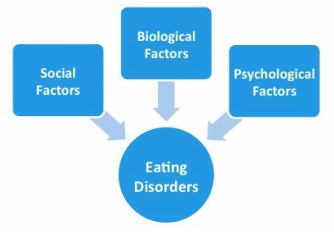Are Food, Weight and Body Image Issues Controlling Your Life?
 Do you feel stressed and dissatisfied about your weight and body-image? Do you find yourself binge eating, restricting your calories, exercising or purging? Has food become an obsession that intrudes on your ability to engage in important activities, relationships or experiences, even when you wish to feel present and relaxed? Maybe you avoid gatherings or events because you worry about what food will be present or what people might think about your body. You may try everything and work very hard to achieve your ideal weight, but end up feeling frustrated, ashamed or angry when your goals seem beyond your reach. Perhaps your friends, family members or co-workers have negatively commented on your weight, which reinforces your damaging belief that you’re not good enough and causes feelings of humiliation and resentment. Do you feel exhausted and overwhelmed and wish your weight did not define you? Or, does it sometimes seem as though your weight is the only thing that makes you special? Do you wish you could let go of your obsession with food and feel free to live a more productive, satisfying and balanced life?
Do you feel stressed and dissatisfied about your weight and body-image? Do you find yourself binge eating, restricting your calories, exercising or purging? Has food become an obsession that intrudes on your ability to engage in important activities, relationships or experiences, even when you wish to feel present and relaxed? Maybe you avoid gatherings or events because you worry about what food will be present or what people might think about your body. You may try everything and work very hard to achieve your ideal weight, but end up feeling frustrated, ashamed or angry when your goals seem beyond your reach. Perhaps your friends, family members or co-workers have negatively commented on your weight, which reinforces your damaging belief that you’re not good enough and causes feelings of humiliation and resentment. Do you feel exhausted and overwhelmed and wish your weight did not define you? Or, does it sometimes seem as though your weight is the only thing that makes you special? Do you wish you could let go of your obsession with food and feel free to live a more productive, satisfying and balanced life?
Struggling with constant thoughts about food, calories and your body can be a frustrating, isolating and anxious experience. Maybe you haven’t resolved distressing emotions from a past trauma and feel irritable and on-edge, unable to feel at ease or comfortable in your own skin. Maybe you only achieve momentary relief when you refuse eating, binge or purge. Perhaps you have begun to feel guilty about the long-term consequences that your body is enduring, especially if you are experiencing heart palpitations, dizziness, fatigue, high or low blood pressure, digestion issues or other symptoms of weight loss or weight gain, which may be very alarming and scary to deal with. You might feel overwhelmed by stressors in your life and turn to food or restriction in order to feel a sense of control. Maybe you wish you could just live one day without constant thoughts about weight, food, calories and exercise. You may feel torn between a desire to free yourself from your eating disorder and a fear about what confronting your challenges might mean.
Many People Struggle With Eating Disorders
 Whether you are driven to binge eat, over-exercise, restrict your calories and/or purge, you are not alone. According to the National Eating Disorders Association, 20 million women and 10 million men will be diagnosed with an eating disorder in their lifetimes. And, this statistic does not include those who struggle with disordered eating behaviors but have not received a clinical diagnosis.
Whether you are driven to binge eat, over-exercise, restrict your calories and/or purge, you are not alone. According to the National Eating Disorders Association, 20 million women and 10 million men will be diagnosed with an eating disorder in their lifetimes. And, this statistic does not include those who struggle with disordered eating behaviors but have not received a clinical diagnosis.
Our society promotes unrealistic images that make a thin body seem like the ideal. Diets and fitness regimens appear in magazines, televisions ads and other media, and it can seem as though people today revel in controlling their bodies. As a result, many people struggle with shame and low self-esteem or feel “out of control” when they gain weight, indulge in a meal or miss a workout. It has become very common to feel as though weight and body shape define self-worth. In addition to media messages, the comments friends, family members and co-workers make can have a huge impact on the way we feel and think about food, dieting and our self-esteem. Many people hear their family members, peers or other influential figures sharing negative or unproductive ideas about weight and body shape. Whether they mean it or not, these messages can still have a significant effect on you.
Perhaps you have always felt that your weight is important, maybe even more important than all of the internal qualities that make you who you are. If you suffered from traumatic experiences in your life, it is not uncommon to unconsciously sooth emotional pain or confusion by over or under-eating. You might not even be aware of how your feelings or experiences contribute to your distorted body image or compulsive, food-related behaviors. The most painful part about living with an eating disorder is the cycle of self-hate. Thankfully, with help and support, you can begin to unpack your experiences, better understand your eating disorder and find lasting relief, self-acceptance and the confidence you need to create a healthy relationship with food.
Eating Disorder Treatment Can Help You Realize That You Are Free and Worthwhile
 You don’t have to feel alone or trapped in a cycle of shame and negative self-talk anymore. For over 25 years, I have helped individuals address their struggles with eating disorders, practice new, healthier ways to cope with challenges and feel equipped to move forward with freedom, self-love and confidence. Regardless of the way food and body image are controlling your thoughts, feelings and actions today, with eating disorder treatment, you can begin to engage in a joyful and healthy life.
You don’t have to feel alone or trapped in a cycle of shame and negative self-talk anymore. For over 25 years, I have helped individuals address their struggles with eating disorders, practice new, healthier ways to cope with challenges and feel equipped to move forward with freedom, self-love and confidence. Regardless of the way food and body image are controlling your thoughts, feelings and actions today, with eating disorder treatment, you can begin to engage in a joyful and healthy life.
In sessions, you can foster a new attitude, built on healing and self-acceptance. I can help you learn how to feel more comfortable adjusting to the unexpected twists life can throw at us each day, without feeling worthless or broken if you fall into unplanned or unwanted behaviors. You are a human being. Life is full of challenges that might make it difficult to follow your ideal eating and exercise plan, but you don’t need to let an eating disorder control your choices or limit your relationships, lifestyle or career.
I am a compassionate, experienced therapist who can help you develop practical tools to confront any distorted self-perception or disordered behaviors that are keeping you stuck. I have practiced and honed a variety of therapeutic methods, which have been proven effective, and I will adapt your eating disorder treatment to your needs. You can learn how to employ new coping skills, such as meditation, mindfulness exercises, deep breathing and self-forgiveness. Through dialectic behavior therapy, you can learn to hold two seemingly conflicting thoughts in your mind. For example, you can become better able to acknowledge when you are trying your best, even when you do something you wish you hadn’t.
It is okay to hold yourself to a healthy physical standard and to aim for fitness. Through practicing effective techniques, you can break free of harmful behaviors and develop other methods of taking care of your mind, body and emotions. Together, we will get to the root of your eating disorder and help you unpack the buried emotional trauma and pain that might be manifesting itself through a desire to control food. You can feel better equipped to work through difficult emotions and experiences without self-blame, self-disgust or a reliance on disordered behaviors.
It is possible for you to find healing, develop a healthy relationship with food and feel empowered to pursue your dreams. With help, you can begin to truly take care of yourself and feel in touch with your emotions, wants and needs. You can build the resiliency needed to break free from your eating disorder and create the life you want.
You may believe that eating disorder treatment can help you stop letting food control your life, but still have questions or concerns…
Eating disorder treatment is too expensive.
You and your long-term wellbeing are worth the investment. An eating disorder can impact every aspect of your life—from your career, physical health and relationships to the wellbeing of your children. Please don’t wait until things get out of control. With dedication and support, you can get your life back.
I don’t have time for eating disorder treatment.
Consider how much time you are already spending obsessing about food, following unrealistic gimmicks, exercising and beating yourself up for falling short of perfect. An eating disorder can consume your thoughts and actions, taking up all of the mental space and energy you need to live your life. The time you spend in therapy is an investment in reclaiming your days, weeks and years. You deserve to take care of yourself.
I want to lose weight. How can therapy help?
While you may think that only a diet can help you more than therapy can, it is important to remember that changing the way you eat and exercise without changing the way you view yourself and life in general is only a temporary solution. Extreme diets are a contributing factor to eating disorders. They can have a serious impact on your body’s ability to recognize hunger, as well as your metabolism, which contributes to a constant cycle of deprivation and indulgence. Eating disorder treatment can help you learn to cope with all the negative external and internal messages and attitudes that are keeping you trapped in a pattern of shame and self-hate. You can learn healthier ways to cope with distressing experiences and feel empowered to eat and exercise in healthy, sustainable ways so that you feel proud and satisfied in the long-run.
Eating Disorder Treatment Can Help You Really Live Again
No matter how helpless and hopeless you may feel today, change is possible. I invite you to call me at 281-693-1455 for a free, 15-minute phone consultation. You can ask me any questions you may have about eating disorder treatment and my practice.
